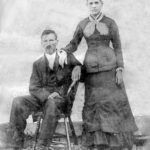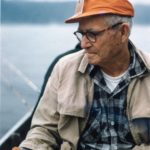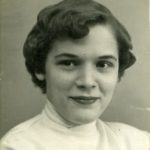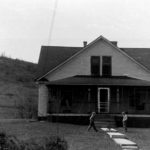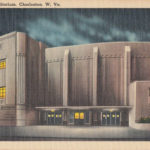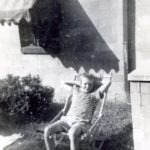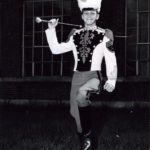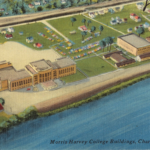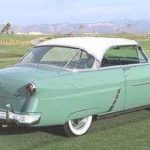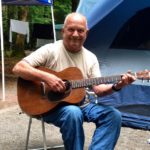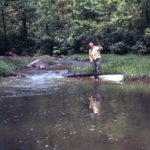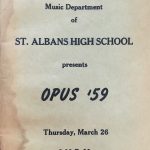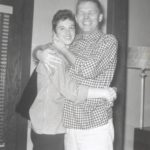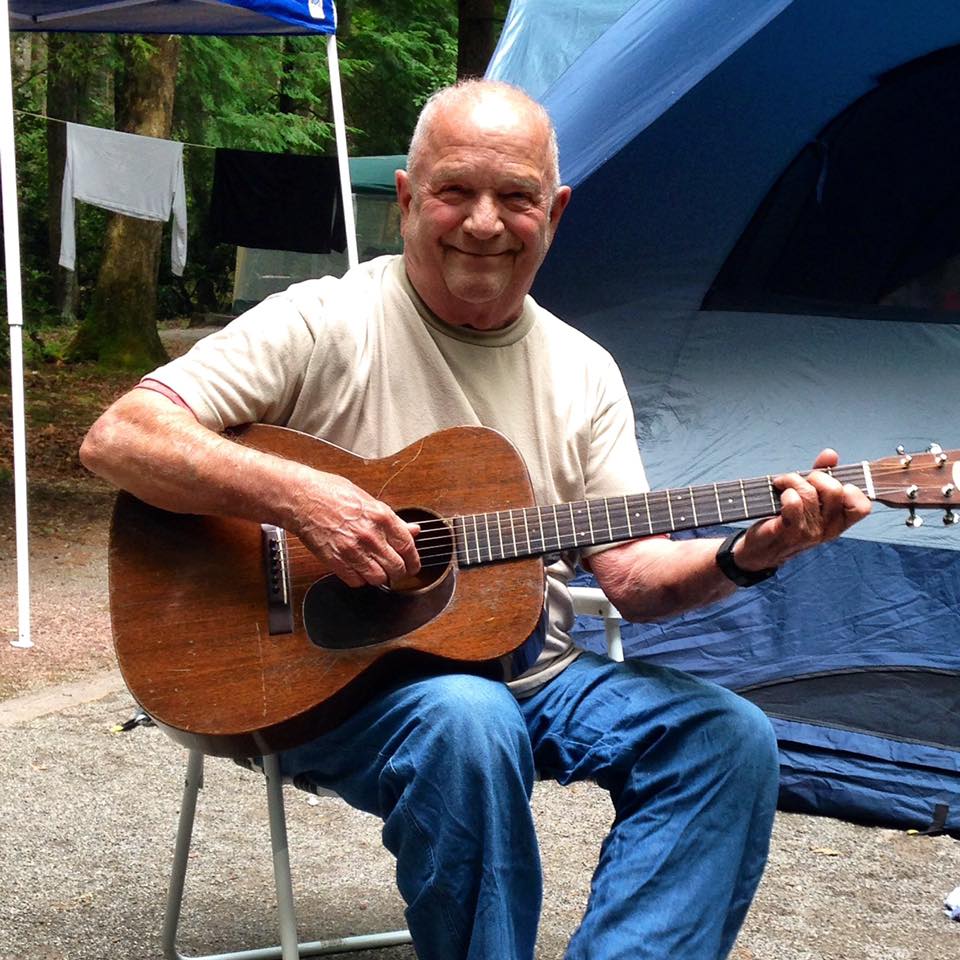Looking Back
Four Generations of Family: 1852-1931
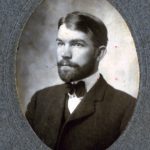
Fred Farley (my paternal grandfather) born in 1879 and died in 1945, was a well-spoken man who grew up around Kanawha Falls, West Virginia. He was a friendly, outgoing man who loved a good laugh, loved to play a card game called Setback, and loved to tease his young grandchildren. Everyone loved Fred Farley.
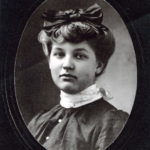
Lelia Farley (my paternal grandmother) was born in 1884 and died in 1945. Although I spent a lot of days and years with her close by, we were never close — that is, we never shared ideas or personal thoughts. While she was always a little aloof, and had a limited sense of humor, underneath there was a spark of kindness that made our relationship a friendly one.
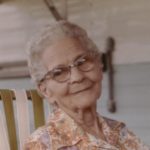
Effie Allen Rice Hale, my mother’s mother, was born in Eastern Kentucky in 1887. She married quite young and moved to West Virginia with her young husband, Henry Hale. By the time I knew her, she was in my eyes “old.” I remember her very well — knew her for a long time, since I was 47 years old when she died in 1978.
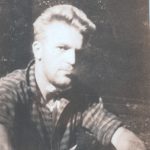
Willis was born at Kanawha Falls, West Virginia, a small town on the Kanawha River about 50 miles east of Charleston. He grew up in Alderson, West Virginia, another small town — with an estimated population of about 1,500 at that time — in Greenbrier County, West Virginia, on the banks of the Greenbrier River.
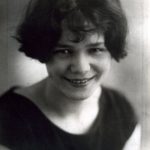
Audrey Farley (my mother) was born in Cannel City, Kentucky on June 6, 1908, the daughter of Henry Orville Hale and Effie Rice Hale. She was the third of ten children. I don’t know much about her early life, except that she grew up in the coal mine communities of southern West Virginia, with a house full of brothers and sisters.
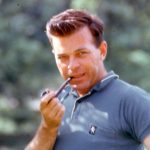
My brother David was born in 1927, his parents, Willis and Audrey, up against it in the oncoming Great Depression. I don’t know much about David’s early years except his brief recounts to me of those times. His earliest years were neither happy nor otherwise; he was a child of the down times., My brother David was born in 1927, his parents, Willis and Audrey, up against it in the oncoming Great Depression. I don’t know much about David’s early years except his brief recounts to me of those times. His earliest years were neither happy nor otherwise; he was a child of the down times.
Early Memories
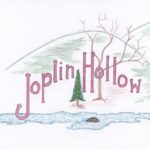
I have just a few memories of my very early years: When I was two-three, we lived in a “company house,” as did most coal mine families in those days. The company provided the homes (I think they charged rent, in the form of scrip), they were all built on the same plan, they all looked just alike. Tiny, frame structures.

In the summer of 1939, when I was approaching my eighth birthday, kids across the country were taken up with a string of superheroes — known now as Action Heroes. The comic books and afternoon radio were alive with such names as The Green Lantern, The Shadow, The Human Torch, The Blue Beetle, and many more.

During my early teen years, the summers were a time of laziness (except for the jobs, which took only part of the day) and being useless. I’d help around the house, which wasn’t a big deal, but for the most part I just engaged in a number of activities, none of which got in the way of doing just nothing. Beginning at about 12, I started to read in earnest.
Early Adulthood
Woods, Waters, and Trains

C&O designates the Chesapeake and Ohio Railroad, one of America’s great railways which originally ran from Cincinnati to Norfolk. And West Virginia was squarely in its pathway — the C&O entered the state (from Ohio) close to Huntington, then through the Kanawha Valley — Charleston, etc., and eastward up the Kanawha and New Rivers, then following the Greenbrier and tunneling through a mountain eastward into Virginia.
Random Topics

This is a short piece which reflects on my favorite “stuff.” It would probably change if I did it again, so don’t attach a lot of finality to my thoughts. It’s meant to give grandchildren and their children a window into the family’s past. I’m sure my own kids have already heard me talk about all this stuff.

I don’t know much about computers. Compared to today’s 12-year-old, I’m an ignoramus. I come from a prehistoric generation, when phones were connected by wire, when electric ovens were new, when there were no cell phones, no smart phones, no email, no texting, no caller ID, no call waiting, no message phones, no answering machines, no internet — you got it: none of that stuff.
Lifespan
My Songs

With a couple of exceptions, the songs included here are all about the woods and waters. Mostly about camping and fishing on New River and Indian Creek with the “gang,” Hanry Hale (called Big Henry in one song), his sons and grandsons, along with a few close buddies., With a couple of exceptions, the songs included here are all about the woods and waters. Mostly about camping and fishing on New River and Indian Creek with the “gang,” Hanry Hale (called Big Henry in one song), his sons and grandsons, along with a few close buddies.
This arrangement of The Lord’s Prayer was composed in 1954 for performance as part of the Orthodox Liturgy/Service at St. George Orthodox Church in Charleston, WV. The regular Sunday service, which was performed by the priest and cantors, was interspersed with musical responses and liturgy by the choir., This arrangement of The Lord’s Prayer was composed in 1954 for performance as part of the Orthodox Liturgy/Service at St. George Orthodox Church in Charleston, WV. The regular Sunday service, which was performed by the priest and cantors, was interspersed with musical responses and liturgy by the choir., This arrangement of The Lord’s Prayer was composed in 1954 for performance as part of the Orthodox Liturgy/Service at St. George Orthodox Church in Charleston, WV. The regular Sunday service, which was performed by the priest and cantors, was interspersed with musical responses and liturgy by the choir.

